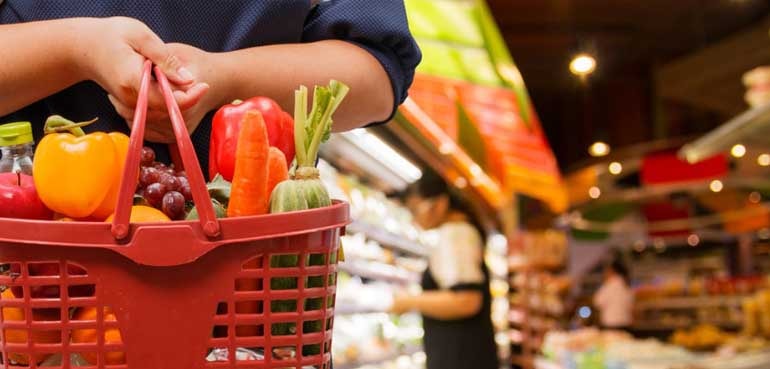By Stephanie Burt
If you travel often, then you know it can get tiring—not to mention expensive—to dine out for every meal. It can also be a stretch on your waistline, depending on your meal choices. savvy travelers are now opting for lodging that has an efficiency kitchen, a full kitchen or even an outdoor grill so they can cook for themselves on vacation when they’re not eating out at restaurants.
Choosing the right lodging is the first step, of course, but now you have to grocery shop in an unfamiliar store, which can take up valuable vacation time. How can you do this efficiently and with delicious results while being budget-conscious, as well? The following simple tips will have you in and out of the store in no time, so your kitchen will be filled with things that you’ll actually want to eat on vacation.
Plan Around Kitchen Gadgets
It’s good to know what gadgets are in your vacation kitchen before you visit the grocery store. If possible, drop your bags in your lodging before heading out, and take the opportunity to assess what your kitchen includes. Do you have a blender? That’s great for soups, smoothies and frozen cocktails. How about a toaster oven? You can cook anything from biscuits to baked sweet potatoes. If you have a wok, then an easy veggie stir fry might be a great dinner one evening.
On the other hand, if you’re visiting something like a mountain cabin, chances are you have to get groceries on the way to your lodging. Do a little research first, and find out what small appliances are in your kitchen—most reputable rental companies or owners can provide you with a list. Knowledge of the equipment you’ll have to cook with will streamline your shopping.
Shop Seasonal and Local
Find out what is local or seasonal to the area that you are visiting. It’s time to be flexible, which can also be delicious! For instance, if you love asparagus but it’s not in season where you are visiting, then skip it, even if it is available. It won’t be fresh and will likely be expensive. Instead, opt for seasonal, local fresh fruits and veggies. If you don’t know how to cook them, a quick internet search can fix that (or if you’re without Wi-Fi, a chat with a local). You’ll protect your pocketbook, eat healthier and take your taste buds on a vacation, too. Chances are local restaurants will also be making the most of these local and seasonal foods.
Read Labels Carefully
When shopping somewhere new, forget your attachment to brand names or specialty products, and make sure to read labels. Your favorite brands might be missing from the grocery store shelves, but chances are—at least for the staples—you’ll be able to find a worthy substitute.
However, some areas might not have the specialty or gourmet products to which you have been accustomed. Consider packing something you cannot live without, like nutritional yeast if you’re a vegan, for example. Take a quick glance at the ingredient label for any brands you aren’t familiar with to make sure those ingredients you’re trying to avoid are missing. Finally, just like with any grocery store run, don’t shop while hungry. Happy vacation cooking!
As the host of The Southern Fork, Stephanie Burt interviews interesting culinary experts in the South. Since she travels a lot, she provides tips for preparing great meals on vacation by using smaller appliances such as toaster ovens. Visit The Home Depot to see their selection of appliances.

